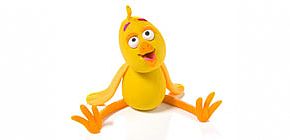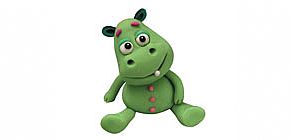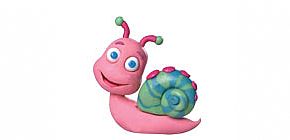Can You Prevent Diarrhea In Infants And Children?
%20(484x363).jpg) |
|
Diarrhea is defined as liquidy excretions that are made more frequently than normal bowel movements. The causes for diarrhea include viruses, such as the rotavirus, bacteria, such as salmonella and e-coli, rotten food, intestinal infections and more. Most dangerous in cases of infant diarrhea: the risk of dehydration. The diarrhea will generally pass on its own within a few days, but dehydration and a lack of absorption of vitamins and minerals from food over the course of those days can be very dangerous, especially for newborns.
How can you prevent or reduce the risk of diarrhea?
Vaccination
There is a vaccine against rotavirus, a significant cause of infant and toddler diarrhea. The vaccine is routinely administered at Tipat Chalav (well baby check-up clinic) as is covered by the government-funded “health basket.” The rotavirus vaccine is administered orally, in three doses. The first dose is given at age 6 weeks. Studies should that every Israeli child contracts the rotavirus at least once by age 5. The vaccine helps significantly reduce the virus’ effects.
Preventing contamination
Diarrhea caused by a virus or bacteria is highly contagious. As such, it is recommended to keep your children away from other children or adults suffering from diarrhea. And, it goes without saying that if your child has diarrhea, it is extremely important to maintain proper hygiene, keep your child home from school and avoid swimming pools. While caring for your child, be sure to wash your hands after every diaper change or bathroom visit. Wrap dirty diapers in closed bags, to prevent the virus from being carried by bugs and flies hovering over trash cans.
Proper handling of food
One of the causes of diarrhea, vomiting and stomach pain is food poisoning. As such, it is recommended to properly handle and prepare raw and cooked foods:
● While shopping, check that the store’s storage conditions are satisfactory and in accordance with manufacturer conditions.
● Check the food’s expiry date before every use. It appears on the back of the package.
● Store cooked food in the refrigerator for just two days and be sure to warm it up well, to the point of boiling, before it is served.
● While out of the house, stay away from foods that might go off in warm weather, especially raw foods such as meat, dairy products and eggs.
You’ve done it all and your child still has the runs? Here’s what to do:
Since the greatest danger of diarrhea is the risk of dehydration, it is important to keep your sick child drinking. In addition, while suffering from diarrhea, your child’s mineral balance in their body is upended due to a loss of salts and other essential minerals, making it harder for them to absorb the liquids they do take in. As such, it is recommended to give infants and toddlers an electrolyte drink. And since diarrhea enables the virus and other infectants to exit the body, avoid giving your child medications such as “Stop It.”
When to seek medical attention
● If your infant is young and hasn’t urinated in several hours
● If the diarrhea is not letting up or stopping after 48 hours
● If the child is apathetic, lacks an appetite or is drowsy
● If the child seizes
● If blood appears in the child’s stool
● If the child has a fever higher than 38 degrees celsius
There are quite a few misperceptions about infants and constipation. The toddler’s intestines work slower than those of an adult, and it can therefore ...
Many infants suffer from an iron deficiency, which is likely to affect their future development, even if their nutrition and weight are on par. As ...
Keeping your infant healthy isn’t always an easy task: the variety of foods, nutritional supplements and medications is tremendous, and selecting the ...


.jpg)
.jpg)
.jpg)
.jpg)



.jpg)
.jpg)
.jpg)
.jpg)

.jpg)


.jpg)
.jpg)
.jpg)
Contact us